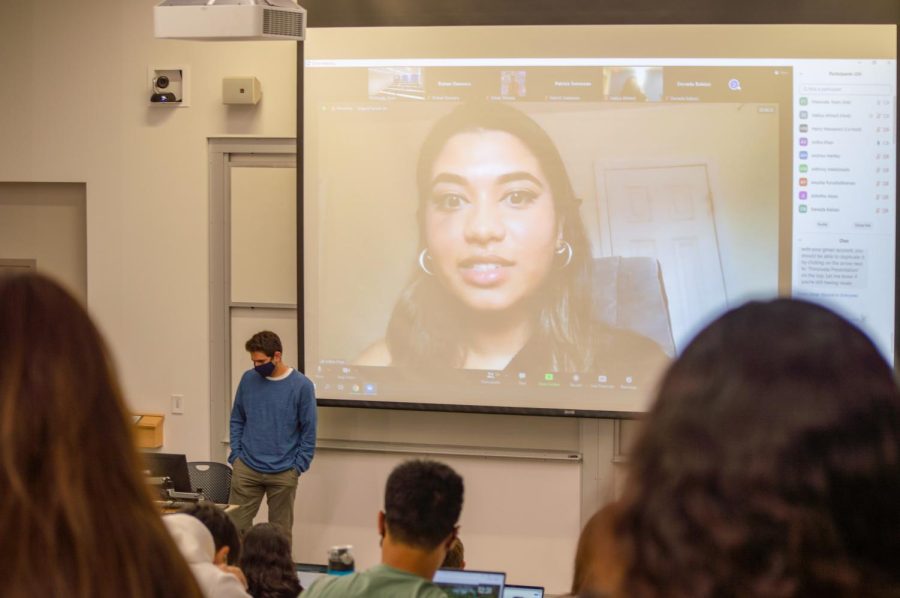Students organize fintech clubs to connect
One element of the program, Finnovate, meets every Saturday from 11 a.m. to 1 p.m. in a hybrid format.
November 2, 2021
Disrupt, the student-led financial technology club on campus, has launched a new financial technology lab called FinTech Lab and a research team for students interested in the field and starting a venture.
The financial technology, or fintech, team aims to compete with traditional financial services delivery methods. Disrupt has the goal to create a community that educates, advances and engages with Northeastern University students and the greater fintech community.
The FinTech concentration was first offered by D’Amore-McKim School of Business in the fall of 2020.
“We existed before the concentration started. We pioneered the whole finTech interest on campus,” said Joanna Jacob, a fourth-year business administration major with a concentration in finance and accounting and president of Disrupt. “We bring not just technical workshops like Python, machine learning — we have events where we collaborate with different [organizations]. Our most recent one is with Boston University.”
The new FinTech Lab is a student-led incubator that aims to foster innovation and serve different fintech ventures all around campus.
The FinTech Lab helps students with ventures prepare for the prototyping phase, connect with experienced individuals and practice telling their story, said Co-Director of FinTech Lab Mohamed Bennis, a fifth-year business administration and math combined major with a concentration in finance.
The new research team offers students the opportunity to research new innovations in fintech and publish weekly newsletters and biweekly fintech mediums.
“Those would be resources that we share with the broader community for them to learn more about. For example, non-fungible tokens that everyone has seen the hype of,” Bennis said.
On top of the new FinTech Lab and research team, Disrupt also offers an eight-week long innovation program called Finnovate, where students are challenged to create new ideas for the financial services industry.
“I would say the main goal of the program is to introduce those who aren’t familiar [with] the fintech industry and learn more about the concentration,” said Zain Alsakhi, a fourth-year math and economics combined major and Director of Finnovate. “And then from that produce a fintech venture that they want to proceed with after Finnovate.”
During the eight-week program, students attend around eight workshops where they learn about technical innovation, soft and hard skills that they can bring into the field as professionals and set them up with the tools to create a venture.
Disrupt also has a tech team led by fourth-year computer science and finance major Shaan Arora, where students are working to develop an application where Northeastern students can complete lessons on fintech and earn raffle tickets after completing lessons for a chance to win $45.
The app development process starts with “ideation, then you create an interface for what it might look like, what you want to look like and then actual application implementation can be done by those people who created the idea for it. Or they can outsource it and pay someone to make the app for them,” Arora said.
Students do not have to be business, finance, or computer science majors to participate. Disrupt is open to any student with financial services ventures in mind or an overall interest in fintech.
“I’m not even a business or tech major and I’m the director,” Alsakhi said. “What we do is in the beginning and in past Finnovate semesters, we pair up complementary skill sets. So, for example, you’re a tech major, you’d work well with a business major, so you offer complementary skills that help the creation of the venture.”
Students in Disrupt believe that the transfer of many services often performed by humans into the technological sector is important. In addition to D’Amore McKim School of Business’ new concentration in FinTech that was first offered in fall 2020, Northeastern students can continue to pursue this interest.
“I think, in general, it’s good because it’ll speed up the process of people learning about tech,” Arora said. “People who aren’t interested, they might have to become interested, because in order to be competitive in this kind of world, you might want to learn a bit more.”







